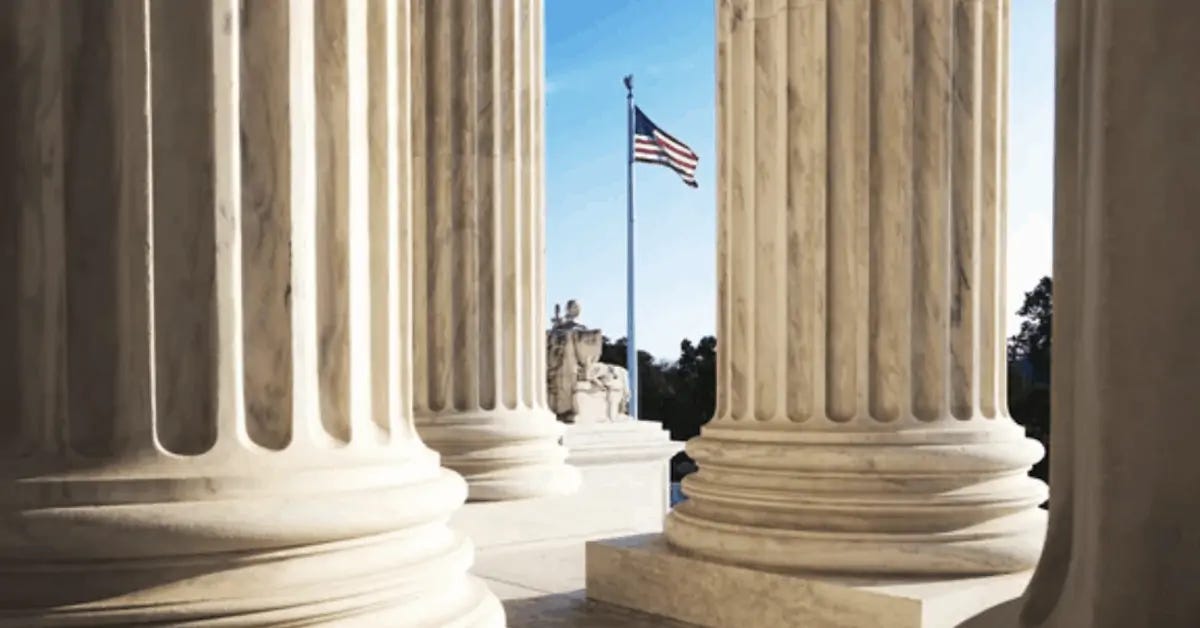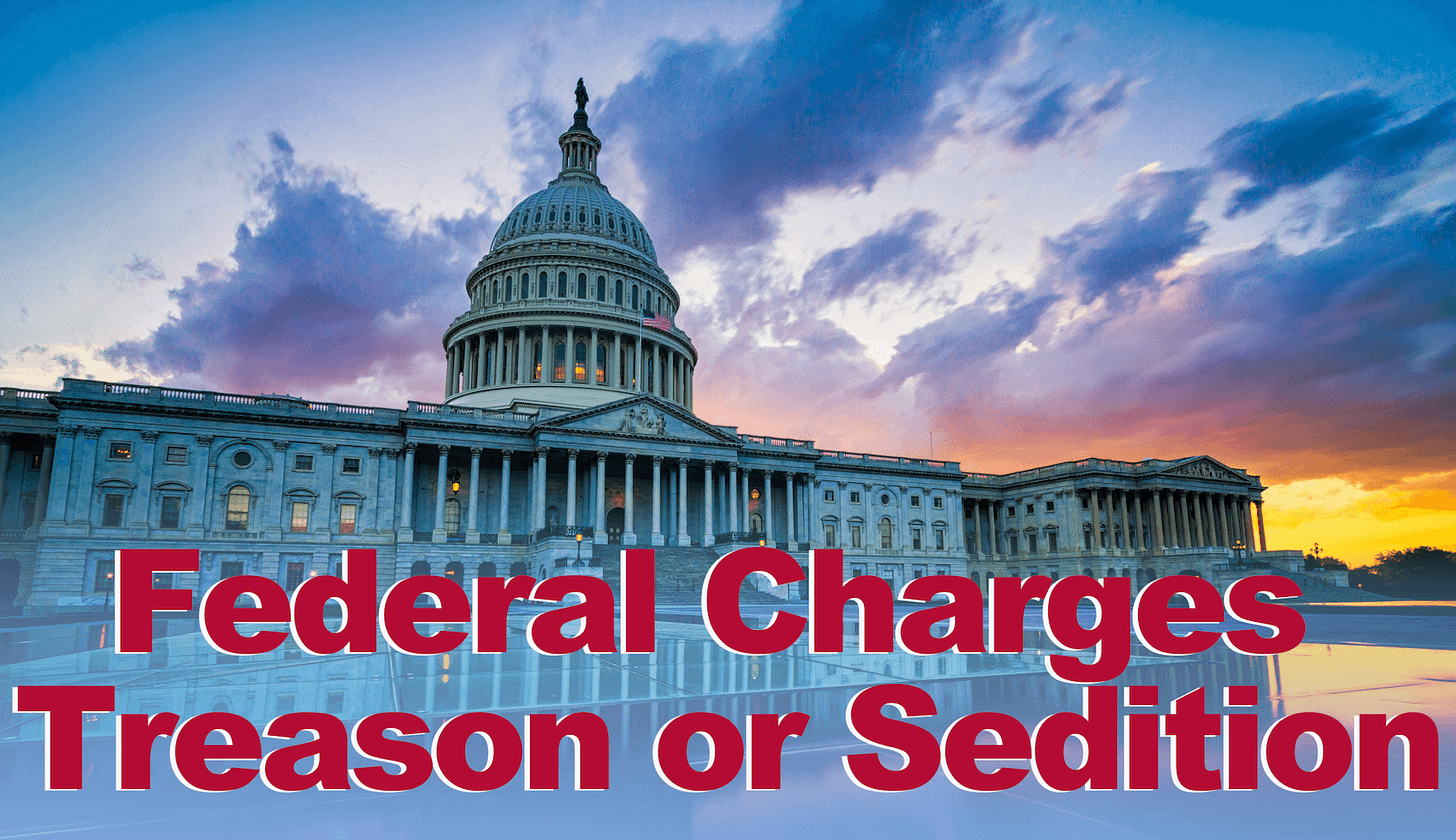The Growing Power of Federal Agencies To Act as Unelected Legislators
The Federal administrative state, now being augmented by tens of thousands of additional agents and armed to the teeth by the fake Biden regime, poses a very real danger to the American People.
December 9, 2023
SCOTUS has granted cert on four cases that challenge the growing power of Federal agencies to act as unelected legislators in ruling with the force of law, enforcing their own dictates, and even determining their own funding levels.
The Federal administrative state, now being augmented by tens of thousands of additional agents and armed to the teeth by the fake O’Biden administration, poses a very real danger to the American People. So, SCOTUS hearing cases that challenge this power is long overdue.
Two cases, Consumer Finance Protection Bureau v. Community Financial Services Association and Securities and Exchange Commission v. Jarkesy, involve agencies’ adjudication of disputes in administrative courts and whether they can allocate taxpayer dollars (a duty clearly assigned to Congress by Article I Section 8 of the US Constitution). Two others, Loper Bright Enterprises v. Raimondo and Relentless Inc. v. Department of Commerce, challenge the imposition of a requirement that commercial fisheries directly pay for the federal observers who monitor them.
Among the most significant potential outcomes to this term’s slate of challenges to administrative power could be the overturn of the Chevron doctrine; long considered a foundation of administrative law.
It is, unarguably, the catalyst behind the exponential growth in girth, cost, power, and jurisdiction of the federal agencies because the 1984 precedent-setting ruling in Chevron v Natural Resources Defense Council held that the courts should generally defer to agencies’ interpretation of statutes passed by Congress.
Because of this precedent, most challenges to the power of the Federal agencies are nipped in the bud. What has the Chevron doctrine meant in practical terms?
Lawmakers have always preferred to craft politically attractive frames in which to present their policy positions rather than lay out the actual mechanics of a given law and its impact.
With the Chevron doctrine, the judiciary has incented the deceptive practice of writing laws in the most ambiguous possible terms and allowing unaccountable, faceless bureaucrats to do their “dirty work.”
The “legislators” get political capital without honest accountability to the voter, while the bureaucracy gets unchecked rule and unbridled growth.
In essence, the Chevron doctrine has created an unholy alliance between the legislative and executive branches; one which turns “consent of the governed” on its head.
Most of the politicians in Congress support a “legal doctrine” that provides effective political cover, as do most on the political Left who support an ever-expanding, ever-more controlling, ever-less democratic form of government.
The Chevron case has been cited in Federal cases 18,000 times, each time further entrenching a precedent that yields nearly limitless power to Federal agencies.
In the process, it has become a nearly insurmountable hurdle to those seeking to challenge agencies’ rule. So, laws that lack political feasibility when presented to legislatures continue to be reconstituted as ‘regulations’ and then to act with the force of law that is beyond judicial review.
Although SCOTUS granting cert to these challenges to the bureaucracy offers great hope for peaceable course correction, it is not without risk.
The term “bureaucrat” is used to evoke images of a bespeckled bean counter in a rumpled suit, one whose obsession with minutia was a wasteful annoyance.
The growth in the size of the bureaucracy was similarly caricatured. We’d speak of “bureaucratic bloat” as if dealing with a gastric disorder.
Today’s bureaucracy has been armed to the teeth and granted sweeping power to crush dissent and destroy lives.
We are all recent witnesses to this destructive power as deployed in pursuit of the Covidocracy. Similar action is already being prepared in response to the non-existent “climate crisis” and the pursuit of “Social Justice.”
The administrative state today represents the frontline workforce of the global Marxist agenda.
Everything the global Marxists have in store relies on the perpetuation and growth of administrative rule. We’d best believe they will defend it with everything they can bring, lawful or not.
And if this late-hour effort to arrest the tyrannical rule of the administrative state is unsuccessful, we can expect that failing to provoke even faster growth and greater aggressiveness from a bureaucracy that will consider itself yet more impervious by having prevailed in this judicial review.
It is frightening to consider the destructive tyranny that will result if the growth and power of the administrative state are accelerated rather than arrested. It may quickly become impossible to even discuss the problem.
And yet…
We the people, do have one more arrow in our quiver. The combined states’ legislatures, convened under Article V of the US Constitution, offer a way to bypass Congress in proposing Constitutional amendments that could specifically strip Federal agencies of power.
Long fought by Leftist lovers of central control and dismissed, even by ostensible conservatives, as “too drastic” to be “safe,” our use of this Constitutional provision for deflating Federal Power is truly long past due.
As its drafter, George Mason explained:
“Amendments therefore will be necessary, and it will be better to provide for them, in an easy, regular and Constitutional way than to trust to chance and violence. It would be improper to require the consent of the Natl. Legislature, because they may abuse their power, and refuse their consent on that very account…”.
Of the 27 amendments now affixed to our Constitution, all have been proposed by the Federal Congress. And apart from those that comprise the Bill of Rights, most either add to the power of the Federal government or leave Federal powers in place.
It should be obvious that achieving a reduction to Federal power will require the Constitutional process that omits the Federal Congress.
By whichever means, the time for deflating the growing, unaccountable, and destructive power of an administrative state grown large enough to suffocate the society it was instituted to serve is now.
READ MORE:




🙏🏾🙏🏾🙏🏾